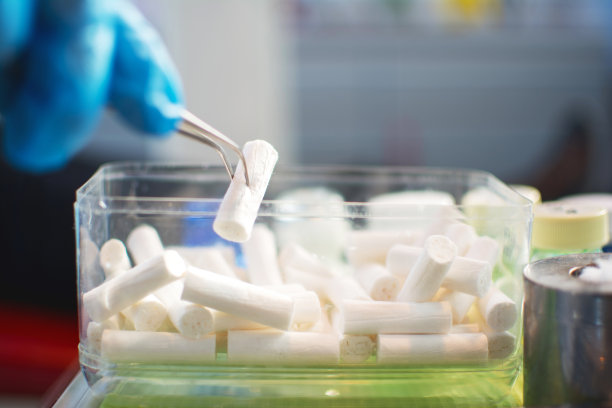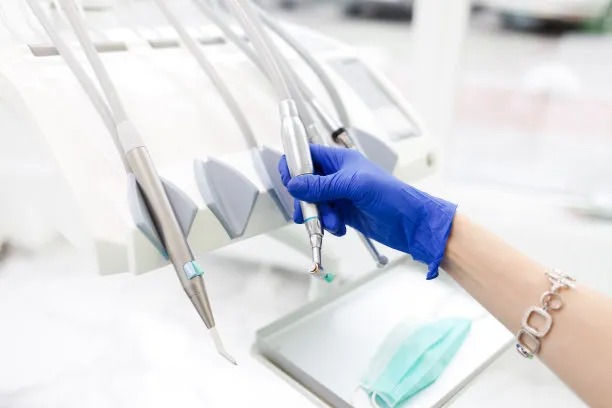Summary: Dental fillings are a common procedure that can significantly improve oral health if approached correctly. This article emphasizes essential tips and precautions necessary for a successful dental filling experience. We discuss the importance of proper preparation before the appointment, understanding the filling materials, following post-procedure care, and maintaining regular dental visits. By adhering to these tips, patients can ensure they achieve optimal oral health and enjoy an improved quality of life. With these guidelines, you will feel more informed and empowered regarding dental fillings, ultimately leading to better dental health.
1. Prepare Yourself Before the Dental Appointment

Preparation is key to a successful dental filling experience. Prior to your appointment, ensure that you are well-informed about the procedure. Knowing what to expect can alleviate anxiety and allow you to relax during the treatment. Research your specific dental issue and consult with your dentist about any concerns or questions you have regarding the filling process.
Another essential step in preparation involves discussing your medical history. Inform your dentist about any allergies, medications, or prior dental treatments. This information can guide the dentist in selecting the best approach for your filling, ultimately ensuring your safety and comfort throughout the procedure.
Lastly, having a plan for getting to and from the dental office is crucial. If sedation is used during the procedure, you may feel groggy afterward. Arrange for a friend or family member to accompany you, ensuring a safe return home so that you can rest without any worries.
2. Understand the Different Filling Materials Available
Different types of filling materials serve various purposes, so understanding these options is vital. Common materials include amalgam, composite resin, glass ionomer, and porcelain. Amalgam is durable and often used for back teeth, while composite resin can be color-matched to your natural teeth for a more aesthetic result.
Discuss these options with your dentist to determine what materials are best suited to your specific dental needs. The choice of filling material may be influenced by the location of the cavity, its size, and your personal preferences regarding oral health and aesthetics.
Additionally, be aware of the longevity and upkeep required for each filling type. For instance, while amalgam fillings are robust, they may not be as visually appealing, whereas composite fillings require careful maintenance. Understanding these trade-offs can help you make an informed decision, contributing to a satisfactory filling experience.
3. Follow Post-Operative Care Instructions
After your dental filling, the importance of following post-operative care instructions cannot be overstated. Your dentist will provide guidelines on what to eat and what activities to avoid for a specific time frame following the procedure. Adhering to these instructions will facilitate a smooth recovery and help prevent complications.
In the first 24 hours, stick to soft foods and avoid very hot or cold beverages to prevent sensitivity. Additionally, if anesthesia is used, be cautious when eating or drinking to avoid biting your cheeks or tongue. Taking care of your mouth in this way can minimize discomfort and help the filling settle properly.
Furthermore, maintain a good oral hygiene practice after the filling is placed. Continue to brush and floss regularly, taking care around the filling area. Watch for any unusual symptoms, such as excessive pain or swelling, and contact your dentist immediately if these arise to address any issues promptly.
4. Schedule Regular Dental Check-Ups
Regular dental check-ups are vital to maintaining optimal oral health, especially after receiving a filling. Schedule follow-up appointments with your dentist for examinations in order to monitor the condition of your fillings. Timely check-ups can identify potential issues before they escalate, ensuring that your dental health remains on track.
During these visits, dental professionals can also provide essential cleaning and preventive care to keep your mouth healthy. Regular cleanings help remove plaque and tartar buildup, reducing the risk of cavities and complications associated with fillings.
Establish a routine dental visit schedule, typically every six months, to maintain ongoing communication with your dentist. This proactive approach not only maximizes your oral health but also fosters a relationship of trust, making future dental procedures, including fillings, more manageable and less stressful.
Summary:
In summary, approaching dental filling procedures with the right mindset and preparation can elevate your oral health experience. By understanding pre-appointment preparation, filling material options, following post-operative care, and scheduling regular check-ups, you can ensure long-lasting benefits from your dental treatment. Empower yourself through knowledge and maintain your investment in healthy teeth.
This article is compiled by Vickong Dental and the content is for reference only.
Vickong Dental
Vickong Dental is a large medical group established in Hong Kong in 2008 by professors from well-known medical universities in Guangdong and Hong Kong, as well as medical doctors from key national '985' universities (including Master's supervisors and senior professors). The chain of branches brings together expert dentists with PhDs and Master's degrees from Hong Kong and Mainland China, committed to providing high-quality dental treatment.
"Vickong Dental Practices the University Motto of 'Healing and Serving Society,' with a Stable Operation for Sixteen Years. It Has Been honored with Hong Kong Enterprise Leaders's Choice,' and is a Global Trusted Implant Center for the Nobel Implant System. Recommended by Hong Kong Metro Broadcast and Guangdong Television, it Serves Customers from Over Thirty Countries and Regions, Gaining the Trust and Favor of Citizens from the Guangdong-Hong Kong-Macau Greater Bay Area and Surrounding Cities.

Thousands of customers' unanimous praise
The most recognized and highly recommended dental service by customers in the Guangdong-Hong Kong-Macau Greater Bay Area
We Ensure You Receive Detailed Care and Attention Here
Hong Kong standards, Shenzhen prices, Your Trusted English-speaking dentists

Vickong Dental Medical-Grade Instrument Disinfection Process
Vickong Dental Medical-Grade Instrument Disinfection Process

Vickong Dental Chain: A Warm and Comfortable Environment for Treatment






Appointment Hours

Q&A
Why choose Vickong Dental?
Vickong Dental practices the university motto 「Medicine to Benefit Society」, with each branch bringing together highly qualified dentists with doctoral and master’s degrees from Hong Kong and the Mainland, and has maintained seventeen years of steady operation。Recipient of 「2024 Hong Kong Enterprise Leaders Brand」, 「2025 Hong Kong Enterprise Leaders Brand」, a Nobel Biocare Global Trusted Implant Center, and a brand recommended by Metro Radio Hong Kong and Guangdong TV。
To date, we have served customers from more than thirty countries and regions,earning exceptionally high word-of-mouth recognition and trusted recommendations from residents across the Guangdong-Hong Kong-Macao Greater Bay Area and surrounding cities
We have eight major branches in Zhuhai、Shenzhen,and a consultation and service assurance center in Hong Kong,so you can book a free consultation at any time for any questions,which is very reassuring.
If I do not accept the quotation after the CT scan, will I be charged??
No! As long as the actual treatment has not started, you will not be charged any fees.
Will there be any additional charges during the treatment process?
No, there won’t be any additional charges. Before treatment begins, we will clearly explain the treatment plan and its corresponding fees. Only after the patient agrees and signs the consent form will we proceed with the dental service.
Can I pay in Hong Kong dollars?
Yes. Vickong Dental accepts payment in Hong Kong dollars. The amount will be converted based on the exchange rate of the day, and the applicable rate will be clearly communicated to you in advance.
Can I reschedule my appointment at any time?
Yes. Please contact us via **WeChat** or **WhatsApp** as early as possible, providing your original appointment time and details, along with your preferred new date and time slot for rescheduling.













